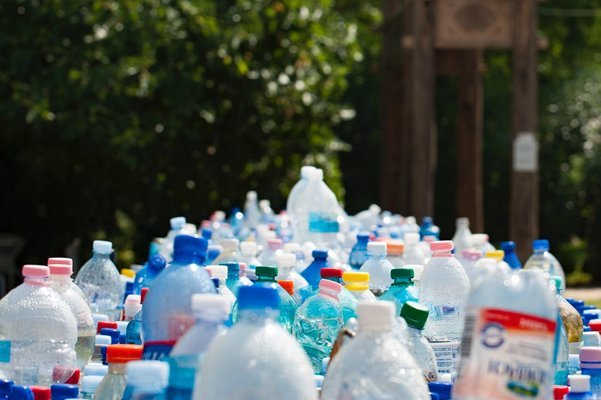Australia - The World’s New Plastic Recycling Hub
Feb 23, 2018 | Ellie WisemanIt’s surprising to learn that Australia’s plastic recycling habits have been quite poor until now, and currently remain so. Considering the country’s unique and protected wildlife, its beautiful beaches, and the speed at which the Great Barrier Reef is being destroyed, you’d have thought the Australian government would be concentrating efforts on preserving their endangered ecosystem.
Despite huge consumption of plastic goods each year in Australia, it’s been found that approximately just 300,000 tonnes is collected back to be recycled, according to the Plastics and Chemicals Industries Association of Australia. Previously, and shockingly, much of this waste has been sent to China to be processed and recycled. Doesn’t that somewhat offset carbon neutralising goals of recycling in the first place? The answer is yes, but this won’t be happening for much longer, potentially spelling further danger.
In July 2017, China announced they would no longer be dealing with ‘foreign waste’ – recycling the world’s plastic for them, due to strains on its own heavily polluted environment. This is a great step in the right direction for China, who now can recycle much more of their own domestic waste. But unless its foreign suppliers begin taking responsibility for their own recycling, this could mean disaster for so many countries’ fit-to-burst landfill sites.
Federal Government’s Response
So far, the Australian government’s response to China’s waste import ban has been disappointing. Environment Minister Josh Frydenberg has been quoted saying that recycling is primarily the responsibility of local governments, eschewing accountability of the issue from the current Federal Government, the Liberal Party of Australia.
Australia certainly has the capacity and engineering ability to deal with its own waste and more; but whether this will happen without government support is yet to be seen. Frydenberg did say that this was an opportunity for Australia’s recycling industry – luckily, companies are stepping up to the plate in place of the Liberal Party.
How Australia is Tackling Plastic
Range International, based in New South Wales, noticed a gap in the market and are pushing for the population to recycle much more plastic, starting with saying no to plastic bags and recycling all possible plastic they do consume – containers, punnets, water bottles, food wrap, etc.
The company then melts down plastic it collects to create shipping pallets, aiming to replace traditional wooden pallets which currently consume an appalling 40% of all the world’s timber. For every 25 recycled plastic pallets bought from Range International, 1 tree is saved from felling.
Perth entrepreneur Darren Lomman is also stepping in. After discovering to his horror that Western Australia had no plastic reprocessing plant of its own, the engineer decided to launch one to fill the gap once dealt with by the international waste market, formerly headed by China. He is in the business of establishing a plant that will turn PET plastic, most commonly used for plastic bottles, into filaments that go into 3D printers.
He noticed how fast the 3D printing industry is growing – currently being used in aerospace engineering, car manufacturing and medical applications – and saw a unique opportunity to leverage this as a use for recycled plastic. He is also partnering with schools across Australia that have 3D printing facilities.
How Can I Help?
Individuals can help recycling efforts in Australia in myriad ways. Here’s a list of initiatives you can get involved with today to start ridding Australia’s landfill sites of waste plastic.
- When moving or clearing out a large lot of rubbish, draft in a local waste service like this reliable company in Perth that have specialist recycling facilities. They will dispose of your waste for you and separate everything that is possible to recycle as part of their Zero Waste Policy.
- Buy reusable shopping bags to take with you every time you shop.
- Email local companies who use unnecessary plastic packaging and ask them to consider using eco-friendly containers.
- Participate in a local beach clean scheme to reduce waste plastic entering the ocean. Devastating new statistics by the Ellen MacArthur Foundation show that by 2050, the weight of plastic in the world’s oceans will equal that of fish.
Separate all recyclable plastics used in your home into your kerbside recycling bins – it might end up being processed by Darren Lomman’s plant!
.png)












